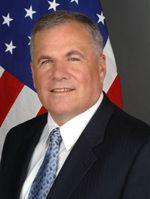As I’ve mentioned previously, a State Department internship is a great way to see if the Foreign Service or Civil Service is right for you.
These internships are targeted at undergraduate and graduate students who are interested in Foreign Service or Civil Service positions with the State Department. Those interested in Foreign Service jobs can work at an embassy overseas and learn from U.S. diplomats on the job. You will likely be asked to contribute or write cables and reports. You could also participate in meetings with host country officials and foreign diplomats.
For those interested in work in the State Department, there are positions open in many Bureaus. This internship will give you a firsthand look at how the State Department operates in Washington, working with our embassies overseas, handling multilateral and bilateral issues and understanding the work of the dedicated Civil Service experts.
If you’re interested, you can find the notice at State.USAjobs.gov. Follow the instructions there. You should also visit State’s website for careers for additional information on the Spring 2014 Student Internship Program (unpaid).
Of course, there is no guarantee of future employment, but especially for civil servants the key to finding a job at State or anywhere in the Federal Government is to get your foot in the door. From there, through networking and building contacts, you could end up with a full-time position.
An important tip is that if you’re interested, apply as quickly as possible. Although there are more than six months before the internships become available, the vetting process takes a long time, especially background checks for your security clearance. In my experience, it is the security clearance process that is the biggest hurdle, not because it’s complicated but because there are too few investigators making the checks.
Your application is due July 1, 2013.
Good luck!

Recent Comments